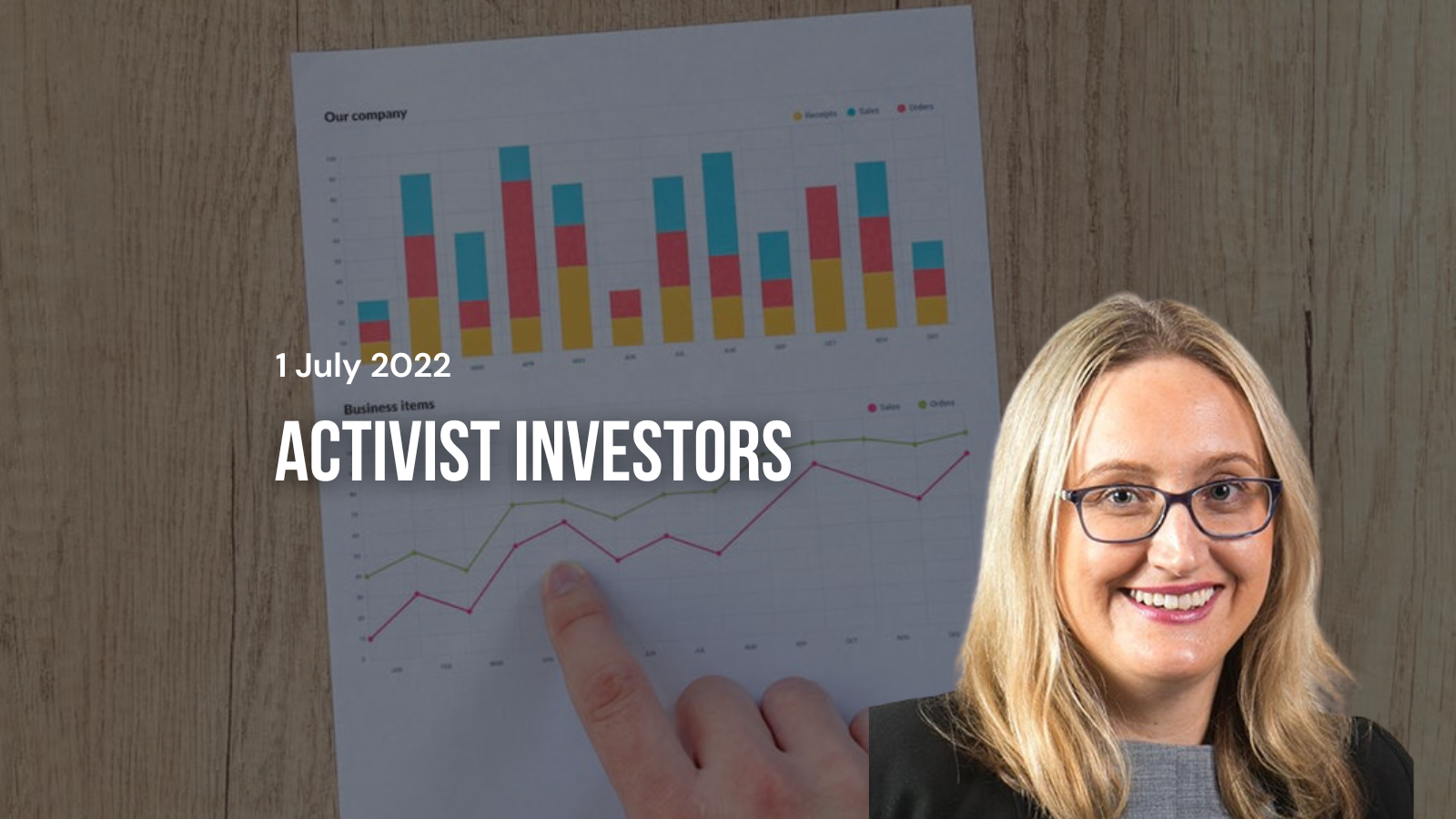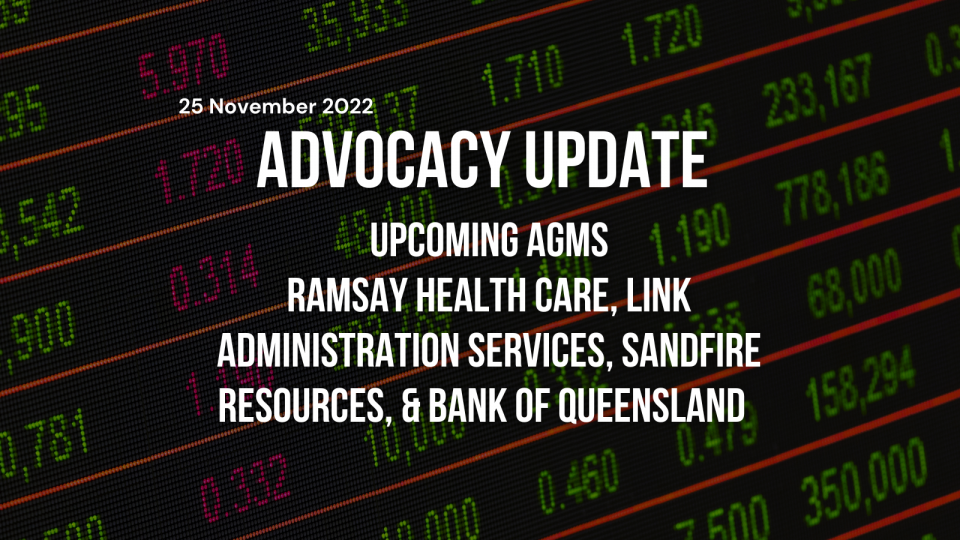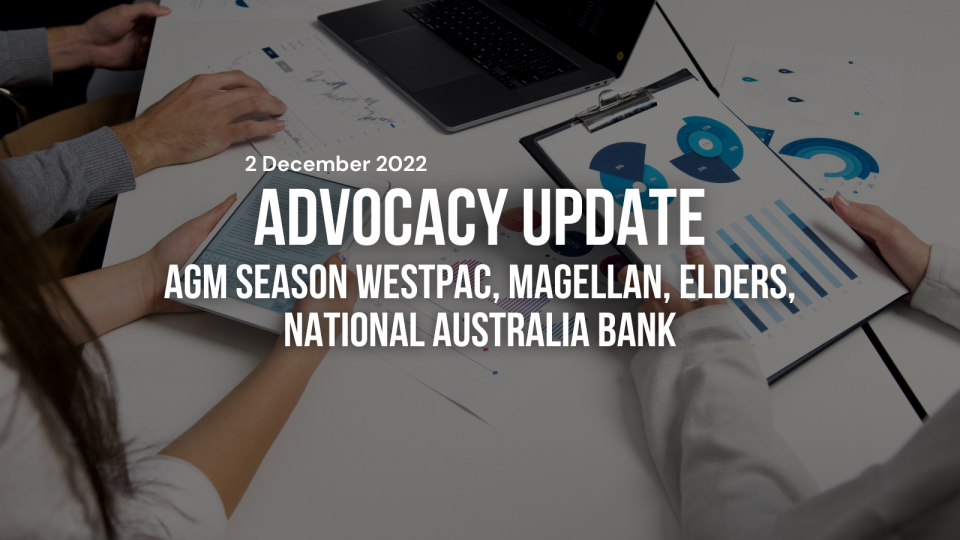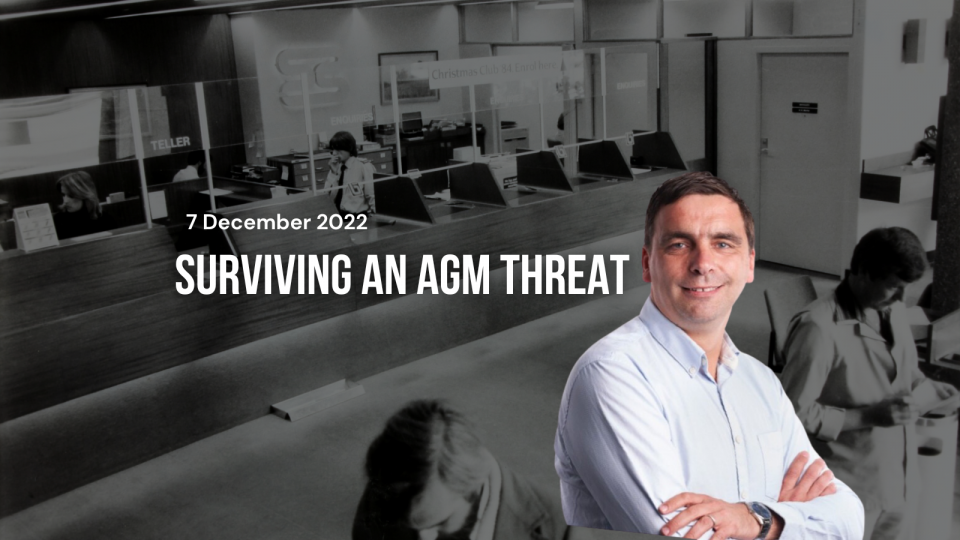

By Rachel Waterhouse, CEO
01 July 2022
As you undoubtedly know by now, AGL recently decided to withdraw its proposed demerger, in the face of a public campaign in opposition by shareholder Mike Cannon-Brookes. Fiona Balzer, Policy and Advocacy Manager, and Helen Manning, AGL company monitor, previously completed a significant amount of work to demystify the demerger and have written about the implications of the 15-month process and the fallout from its unexpected withdrawal.
In our interactions with AGL shareholders, we found the biggest question was about how the Board planned to create value for shareholders, and to address the declines of the past five years. The disagreement was complex – retail shareholders had mixed views on whether to split the company. In the end, the demerger was withdrawn, and AGL made changes to its Board and management structure, with the resignation of the Chair and the CEO.
A strategic review was announced to be completed by September 2023. Regardless of your views of the AGL demerger, the case study has shown how a well-resourced individual or stakeholder can influence change at a company level. Parallels are being seen in the United States, where the world’s richest man, Elon Musk, is making a play for Twitter and seeking to drive changes to that company’s operating model. While such situations are not unheard of when it comes to potential takeovers, the AGL case is possibly the first time a stated philosophical position – the desire for climate change action – has driven an aggressive investment strategy through the purchase of a significant stake in a large company in the Australian market. Is this the future of the share market?
Could we possibly see other billionaires seeking to influence change through strategic purchases in the future in Australia? And how should Boards engage with their stakeholders to achieve a better understanding of their views while still delivering a strategy and meeting retail and other investor expectations of financial returns and shareholder value? Obviously, if an activist investor is arguing for a position that many shareholders agree with, they will gain votes that support the achievement of that goal. Even where there is disagreement about the goal, they may receive investor support where the company and its board have lost the trust of shareholders.
But if they are unsuccessful, they could greatly delay a Board’s strategy, affect the share price, thus reducing the value of other investors’ holdings. An aggressive strategy that doesn’t have broader support may ultimately see retail investors choosing to divest themselves of their holdings, rather than risking diminishing prices or returns. Even if the activist loses interest and gives up, the damage may already have occurred.
Activist shareholders will be an ongoing feature of the Australian market, but they may not have the same interests as the company and its investors. Conversely, the Board has a fiduciary and governance responsibility to develop and oversee the implementation of the strategy and act in the best interests of the company. While we are encouraged by AGL’s new direction and its process of engagement, we will be watching the phenomenon of activist shareholders with interest. Is the recent example a one-off, or will it become a trend in the short to medium term?





